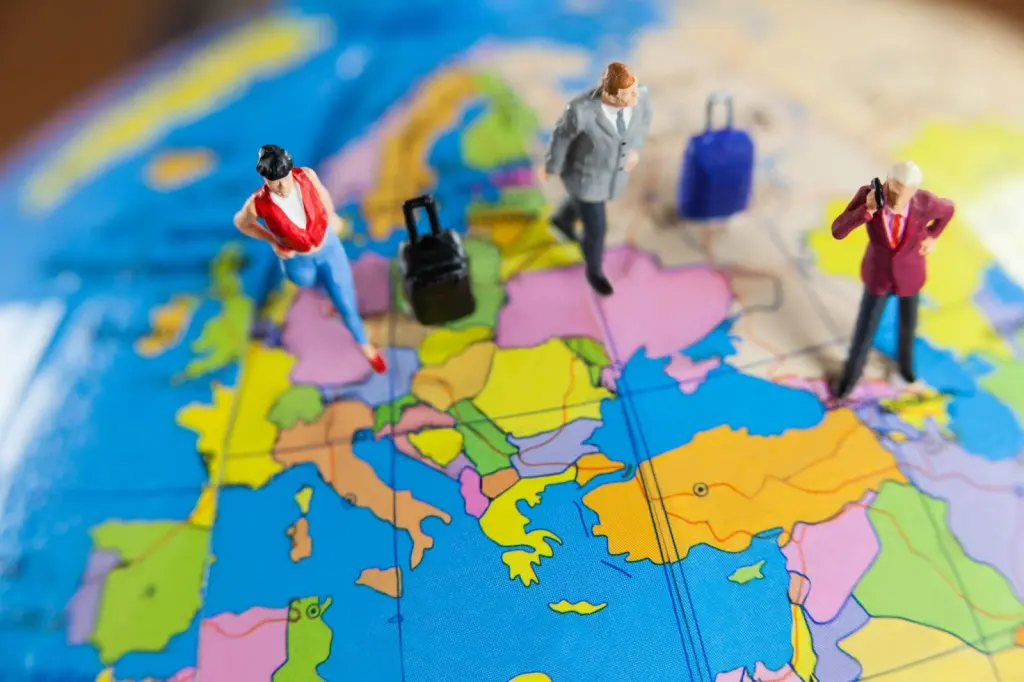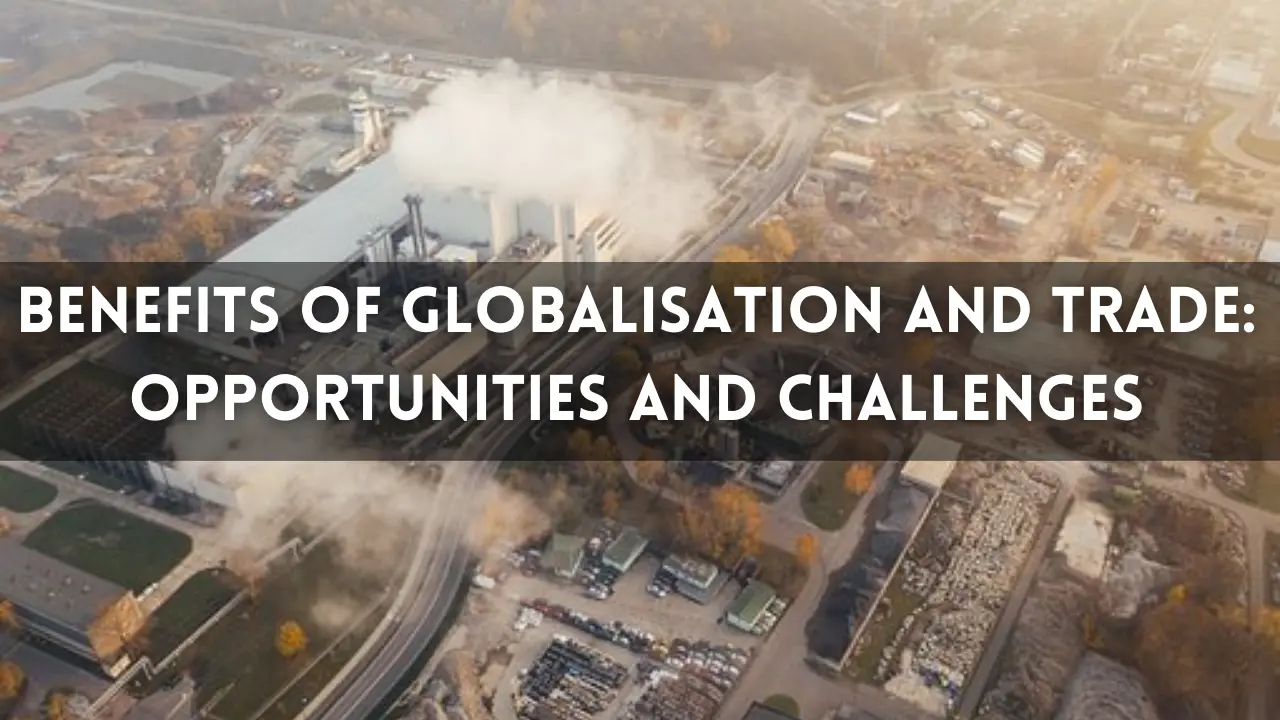Before discussing the benefits of globalization let us know the exact term of globalization.
Globalization is the process of bringing together many nations through greater trade, investments, and technological advancements. It has made the globe more linked, presenting opportunities for companies, employees, and customers. As a result of increased international trade brought on by globalization, nations have been able to focus on manufacturing commodities and services in which they have a comparative advantage, leading to higher productivity and efficiency.
There are many advantages to trade and globalization, such as higher living standards, faster economic growth, and easier access to goods and services. Trade and globalization have also lowered prices for consumers, boosted competition, and created jobs. In this post, we’ll talk about the benefits of globalization and as well as their drawbacks.
Possibilities of Trade and Globalization:

Increased economic growth is among the most important benefits of globalization and trade. Countries can benefit from economies of scale through integrating their economies, which boosts productivity and efficiency. Increased commerce is also a benefits of globalization and can also result in the development of new sectors, which can boost employment and economic expansion.
Workers can benefit from trade and globalization as well. Companies need a wide variety of talents and knowledge as they grow and become more global. As a result, workers—particularly those with specialized skills—have more employment choices.
Additionally, when businesses compete for the best employees, increased commerce may result in higher wages and better working conditions.
Workers:
The easier availability of goods and services is another benefit of globalization and commerce. A broader variety of items are made available to consumers as a result of commerce between nations that specialize in producing particular goods and services. The level of living for people in rich and developing nations alike may rise as a result of this improved access to goods and services.
Globalization and Trade Challenges:

Trade and commerce have numerous benefits of globalization, but they are not without drawbacks. The potential loss of jobs is one of the difficulties. Some industries may see employment losses as businesses grow more global and as competition rises. For employees in non-competitive industries, this may be especially challenging.
The possibility for growing inequality is a challenge of globalization and commerce. Even if benefits of globalization have the potential to boost prosperity and economic growth, it can also result in income disparity, especially if the benefits of globalization are not distributed fairly. This may cause some people to fall behind, especially in developing nations.
Lastly, environmental problems can be brought on by globalization and trade.In some nations, certain businesses may also be subject to lax environmental restrictions, which contributes to pollution and environmental deterioration.
While there are many positive effects of globalization, there are also negative effects of globalization.
The negative effects of globalization on the environment has been among its most serious drawbacks. Let us discuss the some key points in the following sections:-
- Increased greenhouse gas emissions
Although there are many benefits of globalization, the increase of greenhouse gas emissions is the most negative effect of globalization. Currently, goods are traveling larger distances, which increases fuel consumption and, consequently, GHG emissions for that travel. In reality, according to the International Transport Forum, transportation-related carbon dioxide emissions will rise by 16% by 2050 (in comparison to 2015 levels)2.
- Deforestation
Deforestation is closely related to the destruction of habitat. As the demands of the world increase, larger and larger areas of woods are being cut down. These lands are cleared for many purposes, including logging and the raising of livestock. Widespread environmental effects of deforestation include but are not limited to, increased flooding, increased land degradation, and contribution to global warming.
- Destruction of habitat
The destruction of numerous habitats around the world is a result of the clearing of land for the construction of roads and bridges for transportation, as well as to make room for increased industrial and agricultural output to satisfy rising global demand brought on by globalization. Additionally, as there are more ships at sea, there are more oil spills, which harm marine environments.
- Exotic species
Non-local species have traveled to new regions in shipping containers due to increased goods transportation. They become exotic species after they integrate into the local ecosystem because there are no natural predators to keep their population in check. As a result, the ecosystem of the new environment may become unbalanced.
Globalization pros and cons:
Let us discuss the globalization pros and cons:–
Globalization, along with the localization it triggers, is expanding more quickly than ever today. It’s crucial to comprehend the global impact as we approach a third wave that includes a digital economy, cutting-edge technology, and cybercrimes.
Benefits of globalization:
- Businesses can grow by entering new markets, interacting with customers worldwide, and generating more money thanks to the benefits of globalization.
- Companies need to share similar technology and a technological structure in order to collaborate worldwide.
- Because it allows for country specialization, the benefits of globalization improves cooperation. This allows them to take use of their financial advantages and trade those products for other resources.
Take full Benefits of Globalisation:
One of the most common benefits of globalization strategies for business growth is still to enter overseas markets, despite the difficulties. To “go global,” you must first devise a plan that takes into account the linguistic, cultural, and legal challenges that other countries may present.
Conclusion:
Increased economic growth, higher living standards, and greater access to goods and services are just a few of the benefits of globalization and trade have brought about. Aside from lowering prices for consumers, globalization and trade have also helped to create jobs and promote competition. However, there are drawbacks to globalization and trade as well, such as loss of jobs, income inequality, and environmental issues. In order to build a more equitable and sustainable global economy, it is crucial to solve these issues.



